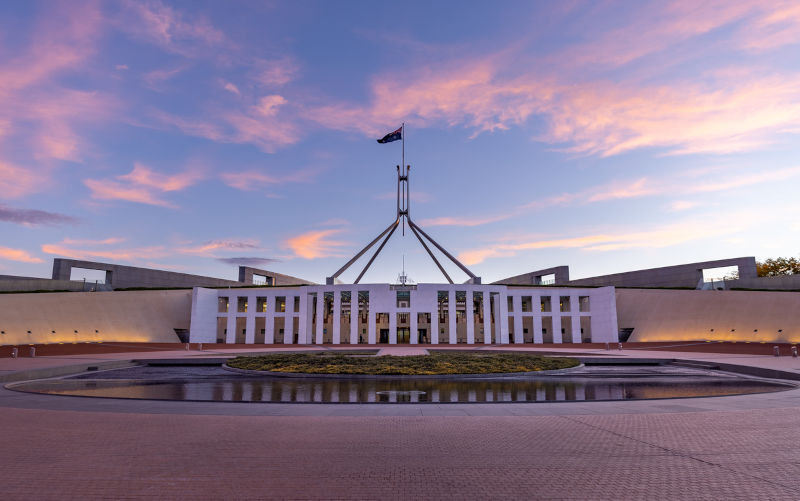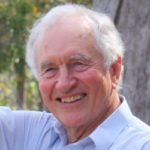‘If you are not outraged by injustice, you lose touch with your own humanity.’
A ‘Gaza Plea for a Common Humanity’ was presented in the Australian Federal Parliament on Thursday morning March 28.
Most MPs had disappeared for Easter, but too much was at stake to cancel a Plea that addressed the hell of Gaza, which was supported by the Australia Palestine Advocacy Network (APAN) and twinned with an open letter from the Independent Peaceful Australian Network (IPAN).
Disgusted and frustrated, the world has been watching. Millions of marchers in hundreds of cities have protested governments’ collusion with a slaughter of innocents, but they march angry over the contrast between outrage on the streets and governments’ failure to respect the human rights of all Palestinians.
Instead of politicians avoiding offending Israel and the US by demanding a permanent ceasefire, instead of air drops of food to divert attention from continued arms sales to Israel, a key humanitarian principle waits to be answered.
‘If you are not outraged by injustice, you lose touch with your own humanity.’
That language affects thinking, action and prospects for peace. It rejects governments’ fascination with abusive uses of power, yet an Australian government fails to condemn the barbarity of Israel. Although scathing about Hamas, it does not identify Israeli government terrorists who have been killing and destroying for decades.
Writing this Plea became a means of connecting with thousands of people searching for justice, outraged citizens, former diplomats and politicians, current academics, lawyers, entertainers, business and religious leaders.
Yet inhumanity knows no limits.
Nightly news shows carnage in Gaza as though the number of fatalities, pictures of bodies in rubble, of wailing mothers and wasting children can be taken for granted, the horrors minimized by an Israeli officer claiming none of this was intended.
Thirty-two thousand Gazans have been slaughtered, two thirds women and children, the majority of survivors are internally displaced, .
UN Secretary General Antonio Guterres says Palestinians in Gaza are enduring horrifying levels of hunger and suffering. At the Rafah border, Guterres expressed his ‘moral outrage’ at the blocking of humanitarian aid to starving Palestinians.
My outrage is personal.
Several first-rate students from Gaza whom I have supported to study and conduct research In Australia, or to attend medical school overseas, have lost many members of their families. Advised to take shelter in a safe house in southern Gaza, the family whom I was with on Gazan beaches a few years ago, are now dead, bombed out of existence by an Israeli air strike.
What price humanity?
This question cannot be answered by sixteen-year-old Gazan, Isabelle who told BBC World, ‘The only solution is to die. To give up to death.’ The invaders of Gaza obliged. The frightened teenager was killed.
Finding a life enhancing way of thinking is not difficult. Poets and philosophers have described ways of living peacefully by challenging abusive power. In ‘Humanity’, nineteen century William Wordsworth asked, ‘What a fair world were ours for verse to paint, if Power could live at ease with self-restraint?’
In 1948, at the same time that 750 thousand Palestinians were being driven from their homes, the Australian poet Oodgeroo Nunucaal recorded her regrets about stigma and cruelty towards her own people. ‘I’m for humankind not color gibes, I’m international never mind tribes, I’m international never mind place, I’m for humanity, all one race.’
Poets recognize people’s interdependence. They know the values, language and practice of non-violence and they describe the courage require to resist oppression. They would speak of peace with justice to benefit Israelis as well as Palestinians.
Inspired by such vision, specific recommendations in the Gaza Plea include demands for a permanent ceasefire, for an end to the siege of Gaza, for the return of hostages and respect for the rulings of the International Court of Justice.
The Plea’s emphasis on inclusiveness is highlighted by plans for peace in which Palestinians from all walks of life take a lead.
In discussion hosted by Senator David Shoebridge and Senator Janet Rice, those possibilities were addressed in parliament. Other MPs might have been grateful for the chance to imagine alternatives to the killing, destruction and starvation of Palestinians in Gaza, but they had gone home.
Philosopher, peace activist, humanitarian Bertrand Russell would have predicted that responses to the deliberate dismantling of humanity in Gaza, placed the world’s humanity on trial.
On that significant Thursday, the willingness and courage of Australian politicians to ponder the history of Palestine, to take a stand for universal human rights were on trial. Twenty citizens chanting Free Palestine’ held a banner announcing. ‘GAZA PLEA for HUMANITY’ and walked towards the assembled media
Consistent with that Gaza Plea, a young poet from Wollongong had written, ‘Let the Children Live.’
Bertrand Russell would have pleaded, ‘Remember humanity and forget the rest.’
Stuart Rees AM is Professor Emeritus at the University of Sydney & recipient of the Jerusalem (Al Quds) Peace Prize.

